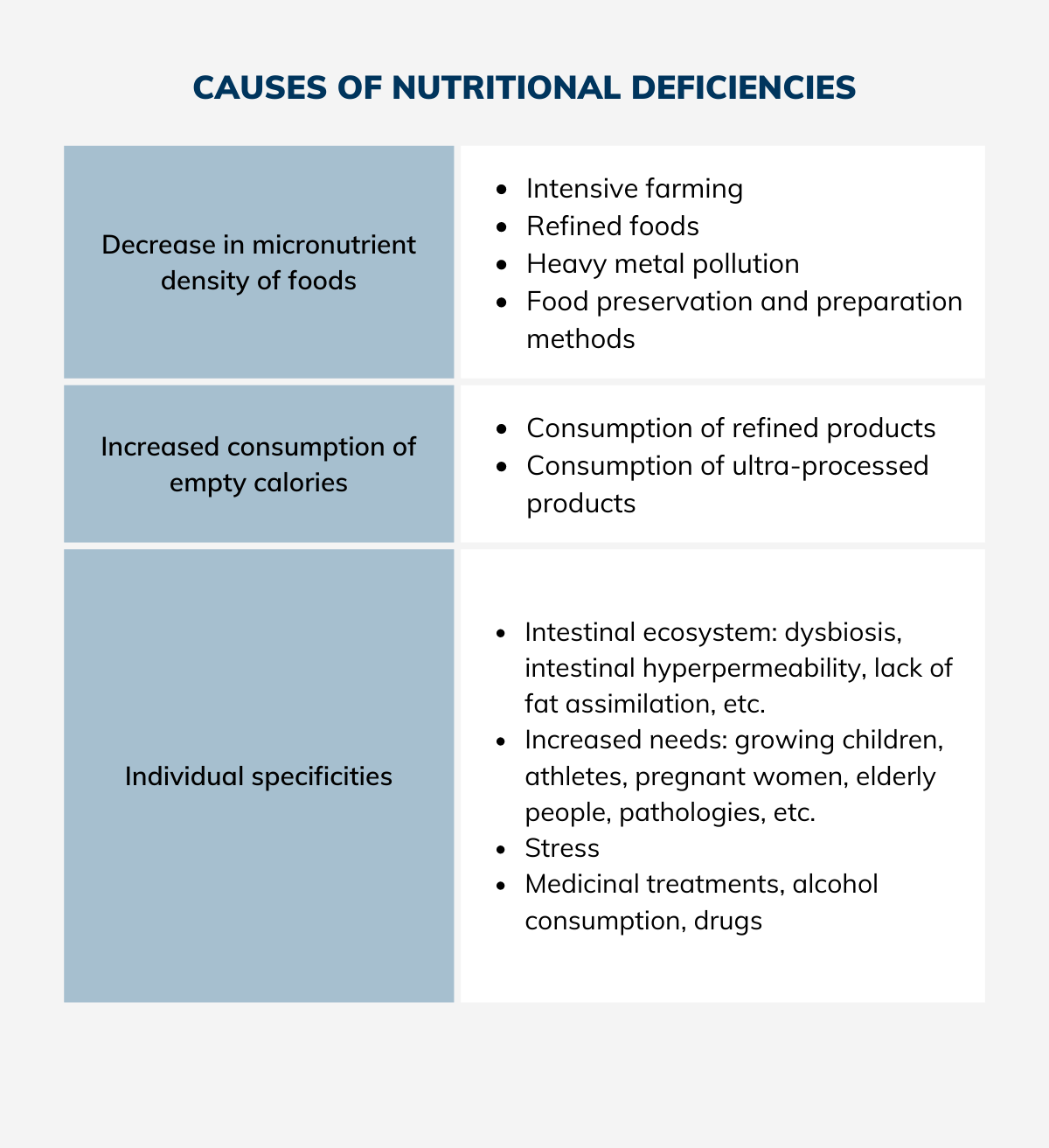In recent years, consumers have become more aware of the importance of nutrition for health.
Paradoxically, the National Health and Nutrition Examination Survey (NHANES) data shows that over 90% of Americans do not meet the Estimated Average Requirement (EAR) or Adequate Intake (AI) for one or more vitamins and minerals.
What are the causes of these deficiencies?
Despite our efforts to eat better, reaching our full daily intake of vitamins and minerals is difficult.
Different parameters explain these nutritional deficiencies, particularly the decrease in the micronutritional density of foods, seasonal harvest, regional availability of food, consumption habits and individual specificities (Wauquier L., 2021).

While the Dietary Guidelines for Americans recommends that the population adopt a healthy and diversified diet, it focuses solely on macronutrient intake (proteins, carbohydrates, lipids).
However, it does not emphasize the importance of micronutrition (vitamins, minerals, trace elements, polyunsaturated fatty acids, phytonutrients, amino acids) and its vital role in our physiology.
The place of supplementation in micronutrition
Micronutrients play a key role in the organism, but the human body cannot synthesize most of them, hence the importance of providing them through the diet (Wauquier L., 2021).
With 90% of the population not getting enough vitamins and minerals, it is clear that supplements have a critical role to play in helping people achieve their micronutrient needs.
Because of the variability of the causes of micronutritional deficiencies, it is preferable to opt for supplements offering a wide range of vitamins and minerals rather than a product only targeting a single mineral or vitamin.
Seaweeds for your micronutrition needs
Seaweeds have been a staple food for a long time, mainly because they are a rich source of micronutrients. Brown seaweeds Ascophyllum nodosum and Fucus vesiculosus are rich in minerals, especially iodine.
This trace element is essential for the production of thyroid hormones. Through its action on the thyroid, iodine plays a vital role in energy metabolism, cognitive function and skin, hair and nail support. Brown seaweeds also contain fucoidans, a compound known for its immune-promoting activity.
The red seaweed Palmaria palmata also contains essential vitamins and minerals. It is a source of magnesium, which contributes to energy metabolism, the normal functioning of bones and muscles, and the nervous system.
It also contains a special type of amino acid called mycosporin-like amino acids (MAA), which have an antioxidant capacity.
Vitamins and minerals are essential for the body to develop and function best. Since data show that most people don’t get all of what’s recommended by eating well, supplements can help provide the support needed to stay healthy.
Are you interested in learning more about the benefits of micronutrition?
Visit our page dedicated to micronutrition.
References :
- The American Nutrient Gap: And How Vitamin and Mineral Supplements Can Help Fill It.
- Les conseils pharma de Léa. Léa Wauquier. 2021. Marabout. 312 p.
